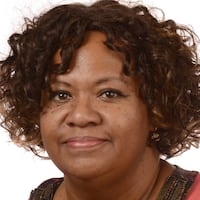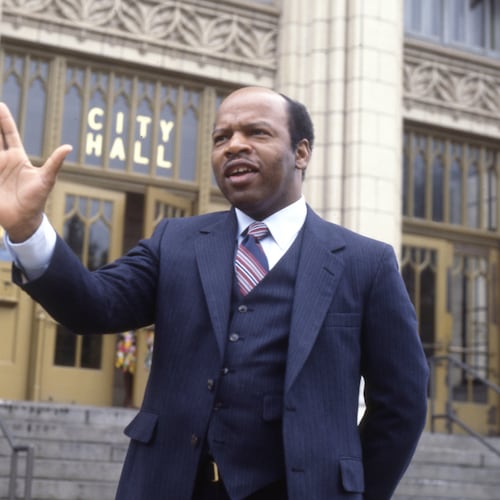John Lewis was 14 when the U.S. Supreme Court’s landmark decision Brown v. Board of Education ruled that state-sanctioned school segregation was unconstitutional. Although it didn’t affect his home of Troy, Alabama, he later said it gave him hope for change.
Lewis was 17 when he left Alabama to attend the American Baptist Theological Seminary in Nashville, Tennessee, and began organizing sit-ins at segregated lunch counters. Although the arrests upset his mother, his commitment to the civil rights movement was evident.
But it also showed that youth and passion are a powerful mix for “good trouble” as Lewis called his brand of passive resistance.
In the wake of Lewis’ death Friday, activists in Georgia and across the country said the 80-year-old congressman from Atlanta left a blueprint for continuing his legacy of readying young people to right societal wrongs.
“We are fortunate that we have someone like Mr. Lewis to show us the right way to make our voices heard,” said Ethan Asher, a recent graduate of Fulton County’s Centennial High School and the director of engagement at Future Coalition, a national network that encourages youth votin
g and student-led organizations such as the youth climate movement. “He was never too busy to lend his support.”
RELATED STORY: Class of 2020: Anxious, energized and eager to meet the future
Gun violence in schools highlighted by the mass shooting at Florida’s Marjory Stoneman Douglas High School in 2018 became a rallying call for students across the country. But wanting to do something and knowing how to do it proved to be a challenge.
The Georgia chapter of March for Our Lives had a willing mentor in Lewis along with several other equitability and empowerment organizations.
“These students wanted to be on the right side of history, but they were intimidated by authority figures and government leaders determined to silence dissent,” said Nora Benavidez, an attorney and board member emeritus for Georgia Alliance for Social Justice.
Along with Lewis, she and others helped teach the young people about their rights and how they can make an impact.
“He was a beacon that attracted new foot soldiers, whether they were teens or older adults who decided they wanted to get involved,” said Benavidez.
Nurah Abdulhaqq, a rising senior at Chapel Hill High in Douglas County, began working with the organizers when she was just 14.
“I think seeing him in the community, in Kroger and places like that made Mr. Lewis more approachable and more real,” she said. “Even though he had done and continued to do such great things, he was a regular person who always helped with our town halls and other events.”
Even during the March For Our Lives event
in downtown Atlanta, he’d break the line to shake hands with other marchers and thank them for their participation.
RELATED STORY: 30,000 in Atlanta march, hear emotional please on gun violence
Despite the persistence of groups across the country, nationwide legislation for gun control faltered. But Lewis told the kids not to let that keep them from pressing on.
“He walked the whole two miles with us and didn’t feel like it was a waste of time,” said Asher. “He reminded us that he was arrested at least 45 times for protesting and another five times (protesting) as a member of Congress.”
He was a continuous voice of optimism who urged students to continue their fight despite incredible odds against success and seemingly insurmountable obstacles.
He often gave pep talks to help keep the determination ignited and find a conduit for the anger, power and frustration.
“If he can put his life and his reputation on the line, I can face suspension,” said Abdulhaqq.
But once those students move beyond high school, there are still lessons to be learned.
That’s where an endowed program at Emory University Law School may help keep the momentum going.
In 2015, Emory Law received an anonymous donation of $1.5 million to help establish the John Lewis Chair for Civil Rights and Social Justice. Lewis had received an honorable doctorate the year before and had been a staunch supporter of the institution.
By 2017, the position was fully funded, which allowed a search for a scholar with an established profile and demonstrated work promoting the rule of law through the study of civil rights. Along the way there were staffing changes and other things that slowed the process. But the position should be staffed and running by fall 2021, said Dean Mary Anne Bobinski.
Credit: Alyssa Pointer
Credit: Alyssa Pointer
The goal of the program is to honor Lewis’ legacy and partnership with Emory, she said.
“We’d like to see Emory Law engage with the community and the world ideas on how to further the cause of civil rights,” she added.
The courses would be relevant for teachers, politicians and many other professions.
“When you look at his legacy and where issues are today, there are ways to apply those same principals of voting rights and economic empowerment,” she said.
Credit: Bob Andres
Credit: Bob Andres
Asher will attend Stanford University in the fall. He’s spent much of the summer working with groups to increase voter registration and turnout.
Abdulhaqq continues the fight for gun control but has realized that the issue is more complex.
“We’re discovering how to make things happen in other ways besides demonstrations,” she said. “When I think that Mr. Lewis was only 23 when he spoke at the March on Washington, I realize that there are a lot of things that I can still do. And knowing that until the end he fought for social justice makes me know that I never have to stop.”
About the Author
The Latest
Featured



